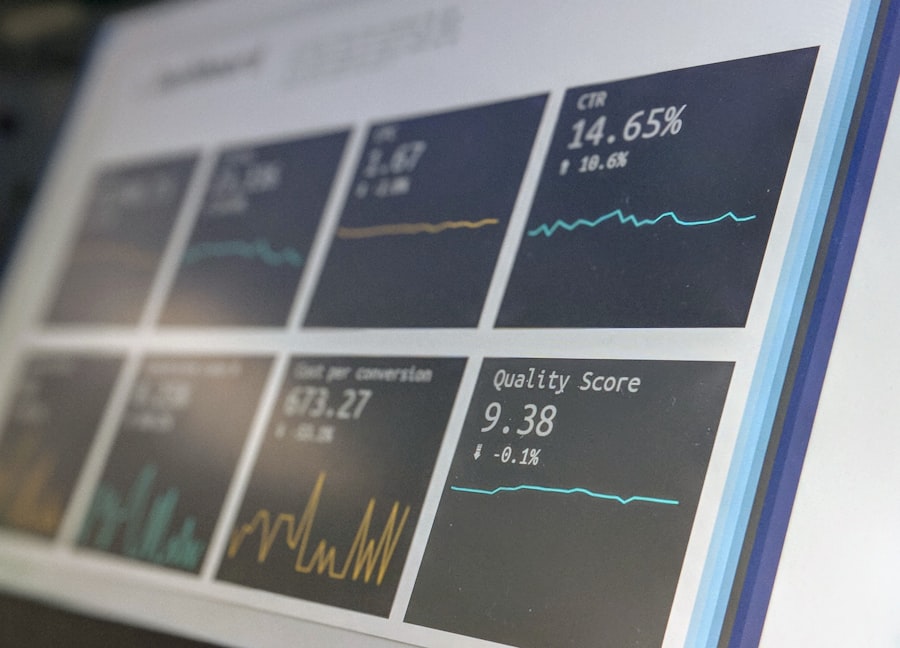Sentiment analysis is a powerful tool that allows businesses to analyze and understand the emotions and attitudes expressed in customer interactions. In the context of SMS-iT CRM, sentiment analysis involves using advanced algorithms to automatically identify and categorize the sentiment expressed in text-based customer communications such as emails, social media posts, and customer service interactions. By leveraging natural language processing and machine learning techniques, SMS-iT CRM can accurately determine whether a customer’s sentiment is positive, negative, or neutral, providing valuable insights into customer satisfaction and brand perception.
Sentiment analysis in SMS-iT CRM goes beyond simply identifying positive or negative sentiments. It also involves analyzing the intensity of emotions expressed, identifying specific topics or issues that are driving customer sentiment, and tracking changes in sentiment over time. This level of insight allows businesses to gain a deeper understanding of customer feedback and take proactive steps to address any issues or concerns that may be impacting brand perception. By harnessing the power of sentiment analysis, businesses can make data-driven decisions to improve customer satisfaction, enhance brand reputation, and drive business growth.
Key Takeaways
- Sentiment analysis in SMS-iT CRM helps businesses understand customer emotions and attitudes in text interactions.
- Monitoring brand health through sentiment analysis allows businesses to gauge customer satisfaction and identify areas for improvement.
- Reputation management can be enhanced by leveraging sentiment analysis to address negative feedback and improve customer perception.
- Identifying positive and negative sentiments in customer interactions enables businesses to tailor their responses and improve customer experience.
- Implementing actionable strategies based on sentiment analysis can help businesses address customer concerns and improve brand perception.
Using Sentiment Analysis to Monitor Brand Health
In today’s digital age, monitoring brand health is more important than ever. With the proliferation of social media and online review platforms, customers have unprecedented power to shape brand perception through their feedback and opinions. Sentiment analysis in SMS-iT CRM enables businesses to effectively monitor brand health by automatically analyzing and categorizing customer sentiments expressed across various communication channels. By aggregating and analyzing this data, businesses can gain valuable insights into how customers perceive their brand, products, and services.
By leveraging sentiment analysis in SMS-iT CRM, businesses can identify trends and patterns in customer sentiment, allowing them to proactively address any issues or concerns that may be impacting brand perception. For example, if a particular product or service is consistently receiving negative feedback, businesses can take immediate action to rectify the situation and improve customer satisfaction. Additionally, sentiment analysis can help businesses identify brand advocates and loyal customers, allowing them to nurture these relationships and leverage them to drive positive word-of-mouth and brand advocacy. Ultimately, by using sentiment analysis to monitor brand health, businesses can stay ahead of the curve and ensure that their brand remains positively perceived in the eyes of their customers.
Leveraging Sentiment Analysis for Reputation Management
Reputation management is a critical aspect of brand building and maintenance. In today’s hyper-connected world, a single negative customer experience can quickly snowball into a PR crisis if not addressed promptly and effectively. Sentiment analysis in SMS-iT CRM provides businesses with a powerful tool for reputation management by enabling them to monitor and analyze customer sentiments in real-time. By automatically categorizing sentiments as positive, negative, or neutral, businesses can quickly identify any potential reputation threats and take proactive measures to mitigate them.
Furthermore, sentiment analysis allows businesses to identify the root causes of negative sentiments, whether it be a specific product issue, customer service complaint, or other underlying issue. Armed with this knowledge, businesses can take targeted actions to address these issues and improve customer satisfaction. Additionally, sentiment analysis can help businesses identify opportunities to amplify positive sentiments and leverage them to enhance brand reputation. By actively managing customer sentiments through sentiment analysis in SMS-iT CRM, businesses can safeguard their brand’s reputation and ensure that they are perceived positively by their target audience.
Identifying Positive and Negative Sentiments in Customer Interactions
Sentiment analysis in SMS-iT CRM enables businesses to automatically identify and categorize positive and negative sentiments expressed in customer interactions. By leveraging advanced natural language processing algorithms, SMS-iT CRM can accurately determine the emotional tone of customer communications, providing businesses with valuable insights into customer satisfaction and brand perception. Positive sentiments may indicate satisfaction with products or services, while negative sentiments may signal dissatisfaction or issues that need to be addressed.
By identifying positive and negative sentiments in customer interactions, businesses can gain a deeper understanding of customer feedback and take targeted actions to improve customer satisfaction. For example, if a significant number of customers express negative sentiments about a particular product feature, businesses can prioritize addressing this issue to enhance customer experience. On the other hand, identifying positive sentiments allows businesses to recognize areas of strength and leverage them to drive customer loyalty and advocacy. Ultimately, by effectively identifying positive and negative sentiments in customer interactions, businesses can make data-driven decisions to improve overall customer satisfaction and brand perception.
Implementing Actionable Strategies Based on Sentiment Analysis
Sentiment analysis in SMS-iT CRM provides businesses with actionable insights that can be leveraged to drive strategic decision-making. By analyzing customer sentiments across various communication channels, businesses can identify trends and patterns that inform actionable strategies to improve customer satisfaction and brand perception. For example, if sentiment analysis reveals a consistent trend of negative feedback about a specific aspect of a product or service, businesses can implement targeted improvements to address these issues.
Furthermore, sentiment analysis can help businesses identify opportunities to amplify positive sentiments and leverage them to enhance brand reputation. For instance, if a particular product feature consistently receives glowing reviews from customers, businesses can highlight this feature in their marketing efforts to drive sales and customer loyalty. By implementing actionable strategies based on sentiment analysis, businesses can effectively address customer concerns, capitalize on areas of strength, and ultimately drive business growth.
Tracking Changes in Sentiment Over Time

One of the key benefits of sentiment analysis in SMS-iT CRM is the ability to track changes in sentiment over time. By analyzing historical data and monitoring ongoing customer interactions, businesses can gain valuable insights into how customer sentiment evolves in response to changes in products, services, or market conditions. This longitudinal view of sentiment allows businesses to identify trends and patterns that inform strategic decision-making and proactive measures to address any shifts in customer sentiment.
For example, if sentiment analysis reveals a sudden increase in negative feedback following the launch of a new product feature, businesses can quickly identify this trend and take immediate action to rectify any issues. Conversely, tracking changes in positive sentiment over time allows businesses to measure the impact of their efforts to improve customer satisfaction and brand perception. By continuously tracking changes in sentiment over time, businesses can stay ahead of potential reputation threats and ensure that they are effectively addressing customer concerns.
Integrating Sentiment Analysis with Other CRM Features for Comprehensive Brand Management
Sentiment analysis is most powerful when integrated with other CRM features to provide comprehensive brand management capabilities. By combining sentiment analysis with customer data management, marketing automation, and other CRM functionalities, businesses can gain a holistic view of customer sentiment and its impact on overall brand health. For example, integrating sentiment analysis with customer data management allows businesses to segment customers based on their sentiments and tailor personalized communication strategies to address their specific needs.
Furthermore, integrating sentiment analysis with marketing automation enables businesses to automate targeted campaigns that leverage positive sentiments to drive brand advocacy and loyalty. By integrating sentiment analysis with other CRM features, businesses can effectively manage their brand reputation across all touchpoints and ensure that they are delivering exceptional customer experiences that drive long-term loyalty and business success.
In conclusion, sentiment analysis in SMS-iT CRM provides businesses with powerful capabilities to monitor brand health, manage reputation, identify positive and negative sentiments in customer interactions, implement actionable strategies based on sentiment analysis, track changes in sentiment over time, and integrate sentiment analysis with other CRM features for comprehensive brand management. By leveraging the insights provided by sentiment analysis, businesses can make data-driven decisions that drive customer satisfaction, enhance brand reputation, and ultimately achieve business growth.
If you’re interested in learning more about the future of technology and its impact on customer relationship management, you should check out the article “SMS-iT Metaverse: The Next Frontier in CRM.” This article explores the potential of the metaverse in revolutionizing CRM and how SMS-iT is at the forefront of this innovation. It’s a fascinating read that complements the discussion on leveraging sentiment analysis for brand health monitoring and reputation management.
FAQs
What is SMS-iT CRM’s Sentiment Analysis feature?
SMS-iT CRM’s Sentiment Analysis feature is a tool that uses natural language processing and machine learning to analyze the sentiment of customer interactions, such as text messages, emails, and social media posts. It can determine whether the sentiment expressed is positive, negative, or neutral.
How can Sentiment Analysis improve brand health monitoring?
Sentiment Analysis can improve brand health monitoring by providing insights into how customers feel about a brand, its products, and its services. By analyzing the sentiment of customer interactions, businesses can identify areas for improvement, track changes in customer sentiment over time, and take proactive measures to address any negative sentiment.
How does Sentiment Analysis help with reputation management?
Sentiment Analysis helps with reputation management by allowing businesses to monitor and manage their online reputation more effectively. By analyzing the sentiment of customer interactions, businesses can identify and address any negative sentiment before it escalates, as well as highlight and leverage positive sentiment to enhance their brand’s reputation.
What are the benefits of leveraging SMS-iT CRM’s Sentiment Analysis for brand health monitoring and reputation management?
The benefits of leveraging SMS-iT CRM’s Sentiment Analysis for brand health monitoring and reputation management include the ability to gain valuable insights into customer sentiment, identify areas for improvement, proactively address negative sentiment, and enhance the overall reputation of the brand. This can lead to improved customer satisfaction, loyalty, and ultimately, business success.







